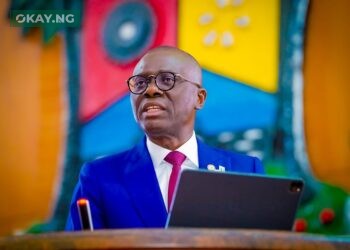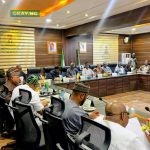Lagos State Governor, Babajide Sanwo-Olu, has urged the inclusion of Micro, Small and Medium Enterprises (MSMEs) alongside high-net-worth individuals into Nigeria’s tax net to tackle the escalating issue of tax evasion and enhance government revenue.
Speaking through his Special Adviser on Taxation and Revenue, Ogungbo Abdul-Kabir Opeyemi, at the opening of the 27th Annual Tax Conference of the Chartered Institute of Taxation of Nigeria (CITN) in Abuja, Sanwo-Olu highlighted a concerning provision in the pending tax reform bills.
He noted, “The clause(s) that puts a cap on income of employees at N800,000 per annum, before it can be subjected to Personal Income Tax, requires deliberate strategies to ensure taxpayers hiding in the MSME and start-up sectors are brought into the tax net and intensify effort on Direct Assessment drive for high net worth individuals to forestall the trend of tax evasion as witnessed across the country today.” The governor emphasized the critical role of sub-national governments in leading the implementation of these reforms rather than waiting for the Federal Government alone.
Sanwo-Olu also called for state governments to commit to updating laws, adopting technology, investing in data analytics, and developing human capital to maximize the benefits of the reforms. Citing Lagos’s success, he attributed the state’s record internally generated revenue of N1 trillion in 2024 to digital reforms and a taxpayer-friendly approach. “Our payer-centric system successfully built in conveniences and transformed how taxpayers fulfil their obligations without leaving their comfort zones,” he said.
He further mentioned Lagos’s use of artificial intelligence chatbots, integrated data analytics, and a harmonized Lagos Revenue Portal to improve tax administration efficiency and transparency. The governor also highlighted initiatives such as a N10 billion partnership with the Bank of Industry to support MSMEs and the Lagos State Electricity Law passed in December 2024 to promote energy self-sufficiency. He concluded by stressing the importance of fiscal reforms to Nigeria’s development and the goal of a $1 trillion economy, commending President Bola Tinubu’s leadership in these efforts.













